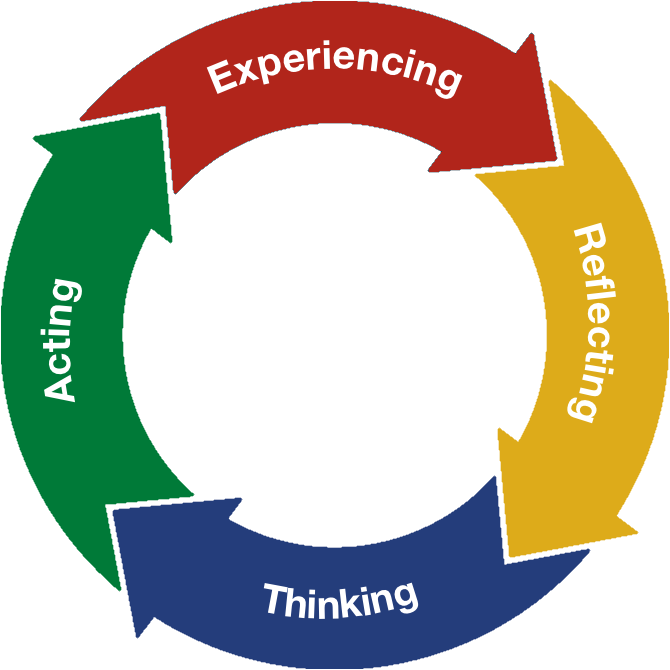Experiential Learning
“Learning is the process whereby knowledge is created through the transformation of experience” – David Kolb, 1984
Experiential Learning Theory, developed by David Kolb beginning in the 1980s, posits that learning is most effective when it includes some active component of experiencing, followed by reflection, conceptualizing, and application (Kolb, A. and Kolb, D., 2018). This is summarized nicely in the below diagram of Kolb’s Experiential Learning Cycle:

The University of Western Ontario released its Experiential Learning Typology and Principles in 2019, which defines Experiential Learning (EL) as follows:
“Experiential learning (EL) is an approach that educators use to intentionally connect learners with practical experiences that include guided reflection. EL allows learners to: increase and apply disciplinary knowledge, develop transferable skills, clarify interests and values, strengthen career engagement and employability, and collaborate meaningfully with communities”.
More information on Experiential Learning at Western can be found here.
Experiential Learning can take many forms. Follow the links below to learn more about how King’s is implementing Experiential Learning to help students “Be, Become, and Belong”.
Experiential LearnIng Courses
Browse King’s courses that include community engaged learning, simulation, field experience, and more
The King's Promise
Signature program guaranteeing meaningful employment within 6 months of graduation
King’s Job Shadow Program
King's Job Shadow Program matches students with employers for one-day placements. Learn more here!
External Partners
There are many ways for employers to get involved with career initiatives at King’s
What can students do with a King's degree? Check out our Career Journeys Infographics to learn more!
Interested in partnering with King’s on our Career Development initiatives? Please complete this expression of interest and someone will get back to you shortly.
Looking for a job?
Sign up for our biweekly Job Seekers Update and receive a list of local job opportunities directly in your inbox!
